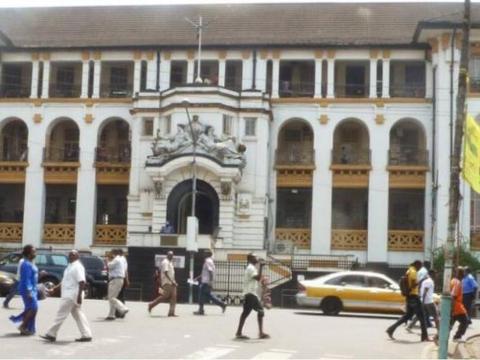By Saio Marrah
University of the Makeni UniMak on Saturday 16 March held its 2024 convocation ceremony after a High Court struck out an injunction that could otherwise have prevented the ceremony from taking place.
Application for an injunction was brought against the university by 13 aggrieved students of the institution whose names were not shortlisted for the said convocation ceremony because they sat reference modules.
The ruling delivered by Justice Abdul Rahman Mansaray noted that granting such an injunction would cause the public to lose confidence in the university’s ability to hold such ceremony in the future.
Thus, their academic calendar would be disrupted for a very long time, if not for ever.
The court further noted in its ruling that the public and the graduands would always be “jittery” whether to go ahead and prepare for any forthcoming event, pointing out that the fear would always be there.
The court noted that year in and out there would be students whose names would not be included on the list, pointing out that the public and the greater number of approved graduands would be at the mercy of those students whose names are missing.
“Hence public interest dictates that the general good is best served if the application is refused. Considering the above reasons I hereby hold that the application…is incompetent and immature and it is therefore struck out,” the ruling states.
Lawyer J.T. Mansaray representing the 13 affected students earlier argued that the handbook, which the university gave to the students as a welcoming package, contained no policy preventing the students from writing a reference examination and that no such policy existed.
He noted that the publishing of a reference examination timetable, receiving payment of reference examination fee, conducting the examination and publishing the result, and publishing of promotional transcript waived such a policy.
Mansaray further argued that at the then point in time, it was unfair that the affected students after they had undergone all the processes in taking the reference examination, had their names removed from the list of graduands for the convocation.
According to him, the students had met all the academic requirements for their names to have been on the list.
He said if their degrees were not awarded having “toiled for several years” no amount of compensation would be enough and it would mean a denial of their basic human rights.
He suggested that the university could set another date for the said convocation ceremony and that if they are denied from being excluded from the other graduands the said affected students would not be certain of whether their degrees would be awarded to them.
In his response, Lawyer B.S. Kamara representing the university, argued that nothing will prevent the said students from not getting their degrees even if their names were not on the list for the convocation ceremony.
He called on the court not to grant the said injunction because doing so would prevent the more than 1,000 (one thousand) students who have been approved by the university, from graduating.
He further argued that the preparation of the other students and their family members would not be quantified in monetary terms if an injunction was placed.
He also noted that to solicit an injunction in the eleventh hour, would not be of public interest.
He submitted that the affected students had no business in writing the said reference examination, but to repeat the module.
Copyright © 2024 Politico (18/03/24)








